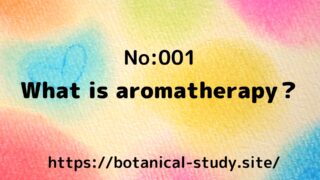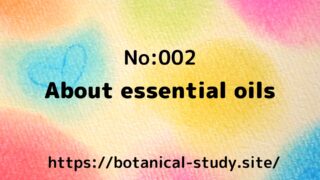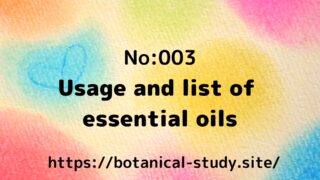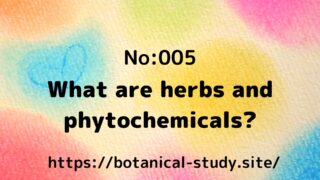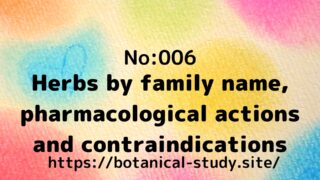4:Individual Responsibility Usage is the Fundamental Principle of Aromatherapy: Essential Oil Contraindications, Aromatic Component Classification, and Pharmacological Actions

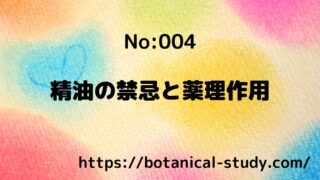
- The Most Important Aspect of Using Essential Oils! Understand the Risks as Well
- Is it okay for humans to use an aroma diffuser every day?
- Main Contraindications and Precautions
- 13 Essential Oils by Scent Category – Easy to Use with No Major Contraindications
- Main Aromatic Compound Categories and Their Pharmacological Actions
- Three Well-Known Aromatic Molecules Requiring Special Attention (in No Particular Order)
- 【Double Check!】Things to Pay Attention to for Safe Use
The Most Important Aspect of Using Essential Oils! Understand the Risks as Well
Got it. Here is the translation:
Due to the potentially harmful effects of essential oils, it’s crucial to be mindful of the usage methods.
- Even the same essential oil can have varying effects on the same person, depending on their health condition.
- Some essential oils have contraindications, meaning certain individuals should avoid using them.
- Each aromatic component contained within essential oils has its own unique properties.
- There are individual variations in the degree of effect even when the same essential oil is used.
- Any essential oil that has deteriorated can have harmful effects on the human body.
Is it okay for humans to use an aroma diffuser every day?
It is said that humans should not use an aroma diffuser with essential oils every day.
Not only for aromatherapy but also for other uses, it is important to take breaks from using essential oils.
Even for essential oils that are not considered highly stimulating, using the same essential oil for a long period is prohibited.
Essential oil molecules can be absorbed into the body through the respiratory system and then distributed via the bloodstream.
Maintaining good air quality, especially in confined living spaces, is crucial for overall health and safety.
Learning about essential oil chemistry, contraindications, and human physiology helps in using essential oils safely and effectively.

To safely utilize aromatherapy, it is also important to consider the following:
- Knowledge and practice of the correct usage and purchasing methods of essential oils
- Understanding the effects of each essential oil (essential oil chemistry)
- Knowledge about human physiology and diseases
Main Contraindications and Precautions
- Using essential oils after drinking alcohol, vigorous exercise, or while driving
- Using essential oils during medication or after vaccinations
- Proper dilution concentrations and avoiding direct application of undiluted oils
- Photosensitization (phototoxic effects)
- Avoiding continuous use of the same essential oils
- Pregnant women and those who are breastfeeding
- Individuals with hormone-dependent conditions
- Individuals with a history of cancer
- Individuals with allergies
- Infants and elderly people
- Individuals with epilepsy
- Individuals with fever or other illnesses

Let’s Check Each Essential Oil’s Unique Contraindications and Precautions
It’s important to understand that contraindications and precautions differ for each essential oil.
You can deepen your understanding by studying essential oil chemistry.
13 Essential Oils by Scent Category – Easy to Use with No Major Contraindications
Learning Essential Oil Chemistry and Effects
So what does it mean to learn about the chemistry and effects of essential oils?
You might come across unfamiliar aromatic compound names, such as “monoterpene hydrocarbons” and “phenols.”
In the world of aromatherapy chemistry, for example, “Thyme Thymol” oil contains an aromatic molecule called “thymol.”
“Thymol” belongs to an aromatic compound category known as “phenols.”
The unique effects of “thymol” include antibacterial and antifungal properties.
Additionally, “phenols” have characteristic effects such as being antiseptic.
Learning these systematically helps in safely using each essential oil and understanding their unique properties.

Essential Oil Chemistry: It’s Complex, but Enthusiasts Dive Deep
While it may seem a bit challenging, those who get hooked truly dive deep into essential oil chemistry.
The site manager enjoys this process so much that they’ve continued their journey with aromatherapy.
Furthermore, realizing that the benefits listed in books are due to these components having specific effects, leads to a convincing reason when considering the human body’s mechanisms.
In addition, the thought of “let’s blend this essential oil today to expect these effects” becomes an important essence, deepening the enjoyment and richness.

Learning Chemistry Allows for More Practical Enjoyment of Aromatherapy
I believe this is the true allure of medical aromatherapy.
Main Aromatic Compound Categories and Their Pharmacological Actions
- Main Aromatic Compound Categories and Their Pharmacological Actions
- Monoterpene Hydrocarbons: Decongestant action, anti-inflammatory action, etc.
- Monoterpene Alcohols: Immunomodulatory action, antimicrobial action, etc.
- Sesquiterpene Alcohols: Hormone-like action, decongestive action, etc.
- Diterpenoid Alcohols: Estrogen-like action, stimulating action, etc.
- Esters: Nervous system balancing action, blood pressure lowering action, etc.
- Oxides: Immunomodulatory action, antiviral action, etc.
- Ketones: Fat-dissolving action, scar-forming action, etc.
- Phenols

Beyond the Above Categories, There are Numerous Unique Actions for Each Aromatic Compound Group
Other aromatic compound groups also exist and have distinctive effects.
Three Well-Known Aromatic Molecules Requiring Special Attention (in No Particular Order)
Three Well-Known Aromatic Molecules Requiring Special Attention (in No Particular Order)
Sclareol (Diterpene Alcohols)
Has emmenagogue action, which may increase the risk of miscarriage.
Furocoumarins (Lactones)
Has phototoxic effects, which can cause skin discoloration when exposed to direct sunlight after application.
Thymol (Phenols)
Has stimulating effects, which can cause skin irritation.

There Are Many More, So Make Sure to Remember Them and Use Essential Oils Safely
Aromatic molecules not only have negative effects but also positive ones. Ensure safe usage by understanding these properties and potential risks.
【Double Check!】Things to Pay Attention to for Safe Use
- Quality and Expiry Date of Essential Oils: Degradation starts from the moment they are opened.
- Presence of Pregnancy, History of Cancer Diseases, or Any Health Conditions
- Consideration for the Age of the User and Current Medications
- Safe Usage Methods: Appropriate usage amount and permissible usage period.
- Contraindications and Precautions
- Effects of Each Essential Oil

“Use at Your Own Risk”
It is important to research on your own.
If you are uncertain, it is safer to consult a doctor or specialist.

“Homemade Aromatherapy Sprays” and “Homemade Aromatherapy Herb Cosmetics”
The production and sale of such items are prohibited (approval is required).
Enjoy your creations personally.
Pay attention not only to contraindications and usage methods but also to related legal regulations.

